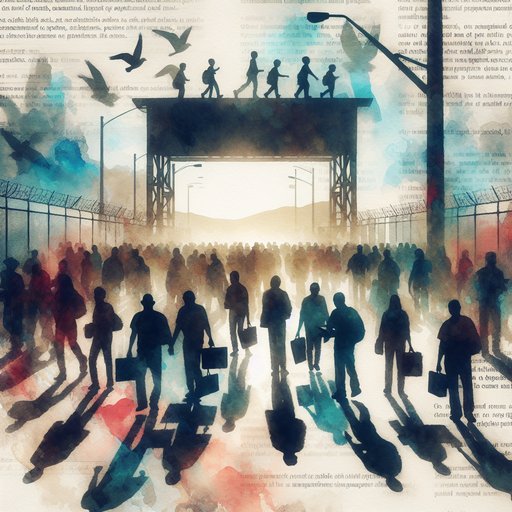
In a decisive move to address France's mounting national debt, Prime Minister François Bayrou unveiled a comprehensive budget plan on July 15, 2025. The ambitious proposal aims to slash €43.8 billion from the national budget, with the goal of reducing the public deficit to 4.6% of GDP. While the plan has been lauded for its potential to stabilize the country's finances, it has also sparked concerns about its impact on local economies and public services.

In a significant development, Nvidia has received approval to resume sales of its H20 AI cards to China, marking a notable shift in US trade policy. This move follows successful negotiations led by Nvidia CEO Jensen Huang in Washington, reflecting a potential thaw in US-China tech trade relations. The decision has already impacted Nvidia's stock positively, suggesting market optimism about the renewed access to the lucrative Chinese market.

In recent days, the United Kingdom's approach to integrating artificial intelligence (AI) into education has ignited a significant policy debate, highlighting the ideological rift between left-wing and right-wing perspectives. The discussion centers on balancing the potential benefits of AI in enhancing learning experiences against concerns over its impact on critical thinking and data privacy.

In a landmark agreement announced by France, New Caledonia has secured a new status of statehood while remaining under French sovereignty. This development aims to quell long-standing tensions in the territory, which have occasionally erupted into violence over the years. The agreement, hailed as 'historic', follows years of negotiation between France and New Caledonian leaders, reflecting a compromise that acknowledges the region's desires for greater autonomy yet retains ties with France [1].

In a significant show of resilience, European Commission President Ursula von der Leyen successfully overcame a no-confidence vote this week, foiling a far-right initiative to unseat her. This political maneuver, amid the backdrop of ongoing strife within the European Union, highlights the challenges facing EU leadership as it juggles internal discontent and external pressures.

In the United States, a recent financial measure has stirred intense debate as the government faces the threat of closure. The newly approved finance bill, signed on July 4, allocates a historic $170 billion to bolster immigration enforcement, provoking concerns from civil liberties advocates [7]. As federal budget negotiations continue, the immigration budget has emerged as a focal point of contention between lawmakers striving to avert a potential government shutdown.

In a week marked by significant shifts in migration policies, governments in the US and Europe are grappling with the complexities and ramifications of new agreements and enforcement strategies. The United States, under the Trump administration, has seen an increased crackdown on immigration, affecting everything from corporate hiring practices to religious practices in local communities. Meanwhile, the UK and France are embroiled in negotiations over a controversial asylum deal as tensions rise in response to surging migrant entries.

Slovenia finds itself at the center of a political maelstrom following Prime Minister Robert Golob's unexpected call for a referendum on the nation’s NATO membership, announced on July 9. This bold move by Golob has sparked vigorous debates across the political spectrum, challenging the unity of his coalition government and captivating the interest of many European analysts and political experts [3].

Few things are more predictable in international relations than a super-power brandishing its economic heft to bend smaller nations to its will. From Franklin Roosevelt’s “arsenal of democracy” to the Reagan-era semiconductor fights with Japan, Washington has long treated tariffs and market access as levers of diplomacy. In that sense, what we are witnessing today is depressingly normal: the president of the United States threatening punitive duties unless foreign leaders change course on issues that have little to do with customs schedules and everything to do with domestic politics. White House

The past week has seen intensifying debates across the political spectrum, primarily focused on the intersection of populism and investigations into high-profile figures. From Silicon Valley boardrooms to the intricacies of U.S. justice, ideological divides are playing a pivotal role in shaping the discourse. At the heart of these debates are public figures like Zohran Mamdani, whose populist challenge is rekindling discussions among Democrats, and revelations around Jeffrey Epstein that continue to stir controversy among right-wing groups.
























